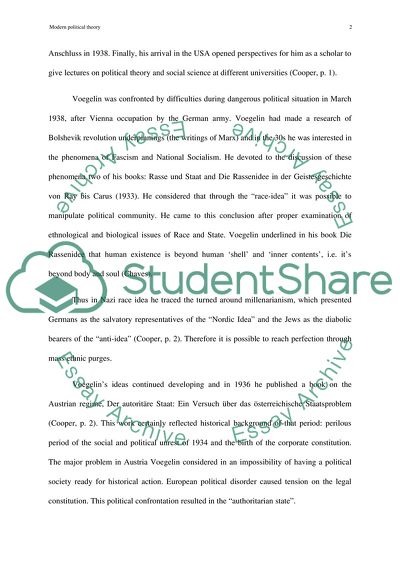Cite this document
(The Political Ideas of Eric Voegelin Essay Example | Topics and Well Written Essays - 2250 words, n.d.)
The Political Ideas of Eric Voegelin Essay Example | Topics and Well Written Essays - 2250 words. https://studentshare.org/politics/1732706-modern-political-theory
The Political Ideas of Eric Voegelin Essay Example | Topics and Well Written Essays - 2250 words. https://studentshare.org/politics/1732706-modern-political-theory
(The Political Ideas of Eric Voegelin Essay Example | Topics and Well Written Essays - 2250 Words)
The Political Ideas of Eric Voegelin Essay Example | Topics and Well Written Essays - 2250 Words. https://studentshare.org/politics/1732706-modern-political-theory.
The Political Ideas of Eric Voegelin Essay Example | Topics and Well Written Essays - 2250 Words. https://studentshare.org/politics/1732706-modern-political-theory.
“The Political Ideas of Eric Voegelin Essay Example | Topics and Well Written Essays - 2250 Words”. https://studentshare.org/politics/1732706-modern-political-theory.


